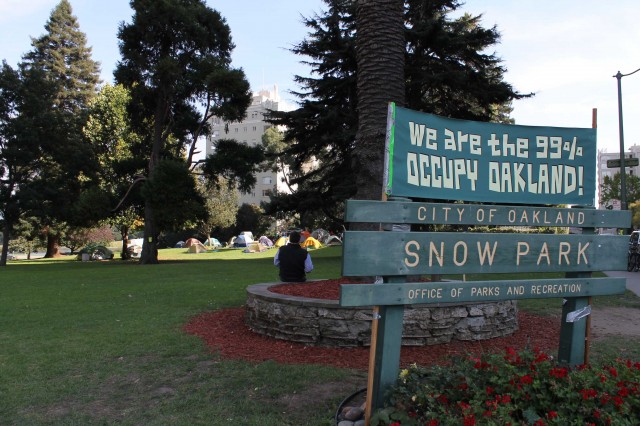
For my second soundbite-focused post, I’m already deviating from the original plan by covering not so much a soundbite as the name of an entire movement. I’ve been wondering lately about the awkward resonance of “Occupy Wall Street,” the way that first word “Occupy” provokes so many distinctive interpretations: it can suggest invasion, colonization, aggressive seizure of territory; less aggressively, it can simply mean occupying a position, both in the sense of physical space and a mental perspective; and of course it echoes occupation as work, employment, along with the work we do at work (on our best days), when we are intensely engaged in (occupied with) a task.
So what does it really mean to “Occupy Wall Street?” For a variety of reasons (all of them lame), I have yet to attend an OWS event in Atlanta, and certainly not in New York. I have occupied neither park nor street nor quad nor sidewalk, which makes me wonder if I can really say that I’m part of the movement, and not just an observer of its viral video. Continue reading



